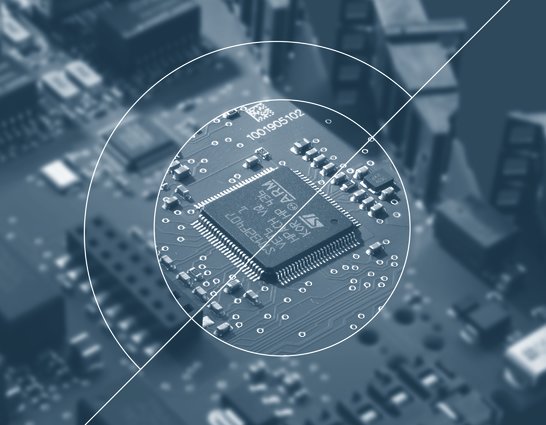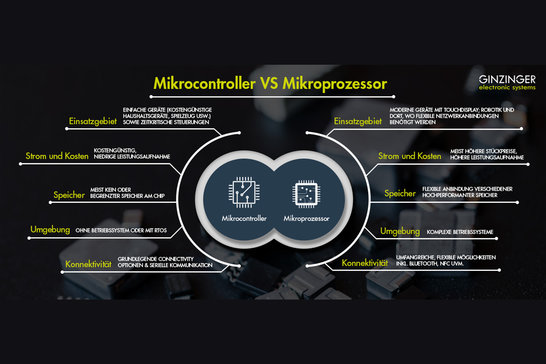Special
Microcontroller or microprocessor?
For new developments, you are spoiled for choice between the two components. We show the respective advantages and disadvantages

Microcontrollers and microprocessors are at the heart of modern electronics and embedded systems. Their selection is crucial to the success of any development project.
When developing new products, the choice between the two components is often not trivial and depends heavily on the specific requirements of the application in question.
To help you decide, we explain the fundamental differences between these two key components in a little more detail.
Mikrocontroller (MCU)
Field of application
Microcontrollers are more likely to be found in simple devices such as low-cost household appliances, toys, etc. The microcontroller also scores highly in time-critical control systems.
Electricity and costs
Microcontrollers are cost-effective and have low power consumption
Memory
Microcontrollers usually have no or only very limited memory on the chip.
Environment
You work in an environment without an operating system or with RTOS.
Connectivity
Microcontrollers have basic connectivity options & serial communication.
Mikroprozessor (MPU)
Field of application
Microprocessors are used in all modern devices with touch displays, in robotics and wherever flexible network connections are required.
Electricity and costs
The unit prices for microprocessors are usually higher, but they also offer higher power consumption.
Memory
The flexible connection of various high-performance memories is not a problem with microprocessors.
Environment
Microprocessors are used in complex operating systems.
Connectivity
Microprocessors offer extensive, flexible options including Bluetooth, NFC and much more.
Mikrocontroller vs. Mikroprozessor
Here is a graphic illustration of the differences between the two key components.
Any questions on the subject? Or are you looking for support with your electronics development? Our team at Ginzinger is ready to support you with expertise and experience.

